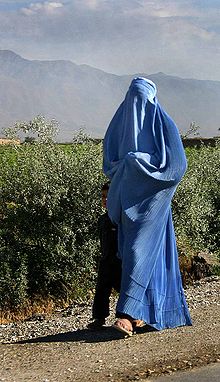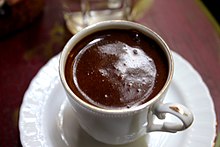Etiquette in the Middle East

As expectations regarding good manners differ from person to person and vary according to each situation, no treatise on the rules of etiquette nor any list of faux pas can ever be complete. As the perception of behaviors and actions vary, intercultural competence is essential. However, a lack of knowledge about the customs and expectations of people of the Middle East can make even the best-intentioned person seem rude, foolish, or worse.
The Middle East
Middle East defines a geocultural area, so it does not have precise borders. The common (although somewhat arbitrary) definition includes:
Column-generating template families
The templates listed here are not interchangeable. For example, using {{col-float}} with {{col-end}} instead of {{col-float-end}} would leave a <div>...</div> open, potentially harming any subsequent formatting.
| Type | Family | Handles wiki
table code?† |
Responsive/ mobile suited |
Start template | Column divider | End template |
|---|---|---|---|---|---|---|
| Float | "col-float" | Yes | Yes | {{col-float}} | {{col-float-break}} | {{col-float-end}} |
| "columns-start" | Yes | Yes | {{columns-start}} | {{column}} | {{columns-end}} | |
| Columns | "div col" | Yes | Yes | {{div col}} | – | {{div col end}} |
| "columns-list" | No | Yes | {{columns-list}} (wraps div col) | – | – | |
| Flexbox | "flex columns" | No | Yes | {{flex columns}} | – | – |
| Table | "col" | Yes | No | {{col-begin}}, {{col-begin-fixed}} or {{col-begin-small}} |
{{col-break}} or {{col-2}} .. {{col-5}} |
{{col-end}} |
† Can template handle the basic wiki markup {| | || |- |} used to create tables? If not, special templates that produce these elements (such as {{(!}}, {{!}}, {{!!}}, {{!-}}, {{!)}})—or HTML tags (<table>...</table>, <tr>...</tr>, etc.)—need to be used instead.
Islam

Many matters of etiquette in the Middle East are connected to Islam as it is revealed in the Qur'an and how it has been traditionally understood and practiced throughout the centuries.
The Muslim world
As such, many points discussed in this article are applicable in other regions of the Muslim world such as the state of Kelantan in Malaysia or certain communities in North India. This holds especially true in Muslim majority countries outside the Middle East including:
Heterogeneity
Among Muslims in the Middle East and elsewhere, the most drastically difference of opinion about etiquette and propriety may exist between Conservative Muslims and Progressive Muslims.
For example, a muslim in Riyadh and a believer bartender working in a gay club in Istanbul might both be Sunni Muslims with a great deal of faith in Allah, but they assuredly possess different belief systems regarding what is acceptable and what offends.
Expectations about manners and etiquette will also vary along ethnic lines, especially in cases where people are the inheritors of different linguistic traditions. For example, Iranians are an ethnically and linguistically diverse people, distinct from Arabs and would therefore not practice customs that are distinctly Arabic.
Customs might also vary along denominational lines within Islam, such as those divisions which exist between Shi'ites, Sunnis, and Alawites.
Other religions

The Middle East is home to many people who follow faiths besides Islam. Most notable among them are various Jewish denominations, the churches of Eastern Orthodox Christianity, Copts and other adherents of Oriental Orthodoxy, Maronites, Melkites, Zoroastrians, and Bahá'ís.
All these people possess customs, traditions and beliefs distinct to their own cultural legacy and differing from those of Muslims, including ideas about what is good etiquette and what offends their sensabilities.
In some cases, however, Muslims and non-Muslims in the Middle East will share characteristics, whether it is the prohibition against pork ordained by both kosher and halal dietary restrictions, a preference for the beverage widely known elsewhere as "Turkish coffee", or knowledge of how to conduct business in a crowded souk without being cheated. As coexistence, rather than conflict, has been the norm between people in the Middle East throughout much of history, it is a place where people with different beliefs often share the same traditions.
Points of etiquette
Although the Middle East is a large expanse of geography with a variety of customs, noting the following points of etiquette can be useful when dealing with people around the world who have been raised according to the traditions of the Middle East or, in some cases, Muslim societies elsewhere.
- Conducting business effectively in a souk or bazaar requires an understanding of how to haggle like the locals. This is an art requiring participants to be appropriately aggressive, keen to how much should be offered at a given point in a transaction, etc.
- The modesty of one's personal attire is of great concern to many in the Middle East, although the parameters of this modesty vary. In Saudi Arabia, for example, many families expect all female members to wear a niqab or burqa while even men and women visiting from other cultures should wear very non-revealing clothes to avoid harsh confrontation. In another example, males and females in shorts, skimpy t-shirts or other "immodest" clothes might find themselves roughly evicted from a variety of places, especially holy sites (be they tended by Muslims, Jews or Christians). Get specific guidelines from locals when possible.

- Regarding head attire specifically, the etiquette at many Muslim holy sites requires that a headscarf or some other modest head covering be worn. For women this might be a hijab and for men it might be a taqiyah (cap), turban, or keffiyeh. A yarmulke or other head covering is expected for men in synagogues and other places where Jews pray. Orthodox Christian sites might require the removal of hats by men but will expect woman to cover their hair with kerchief or veil.
- Among Muslims, the left hand is reserved for bodily hygiene and considered unclean. Thus, the right hand should be used for eating. Shaking hands or handing over an item with one's left hand is an insult.[1]
- Public displays of affection between people of the opposite gender are frowned upon everywhere more conservative values hold sway.[1]
- In many cases, people of the same gender holding hands while walking is considered an ordinary display of friendship without romantic connotations.[2]
- In a related point, many people in the Middle East claim a more modest area of personal space than that which is usual elsewhere. Accordingly, it can seem rude for an individual to step away when another individual is stepping closer.[3]
- In regard to vocal emphasis, volume and body language, people in the Middle East may communicate in ways which other people (such as English and Germans) reserve for when they are angry or upset. This should be kept in mind when analyzing the mood of a situation. [1]
- Special respect is paid to older people in many circumstances. This can include standing when older people enter a room, always greeting older people before others present (even if they are better known to you), standing when speaking to one’s elders and serving older people first at a meal table. [1]

- Many people throughout the Middle East, especially Arabs, take great pride in shows of hospitality, never failing to at least serve coffee and a snack such as figs but preferring to present guests with a lavish choice of expensive delicacies in abundance. To refuse such hospitality can cause offense.
- In some areas in the Middle East, it is common for people to take their food from a common plate in the center of the table. Rather than employing forks or spoons, people may scoop up hummus and other foodstuff with pita bread.
- In many Middle Eastern countries, grouping the thumb and fingers together, and shaking it up and down, fingers pointing upwards, indicates "wait".
- In Iran, the "thumbs up" gesture is considered an offensive insult[1]
- Displaying the sole of one's foot or touching somebody with one's shoe is often considered rude. In some circumstances, shoes should be removed before entering a living room.[4]
- Many in the Middle East do not separate professional and personal life. Doing business revolves much more around personal relationships, family ties, trust and honour. There is a tendency to prioritise personal matters above all else. It is therefore crucial that business relationships are built on mutual friendship and trust.[5]
- Responding to an anger or seriousness with light laughter or a smile is common. This must not be seen as an indication that the other person is not taking you or the situation seriously.
- A common custom in Iranian culture is 'tarof' which can be translated as 'offering', it is common for a person to not accept an offering (food, beverages etc.) the first or possibly second time, instead taking up the offer the third time, this traditionally implies dignity, self-respect and respect for the host.
- Positioning yourself so your back is not facing another person is also a common Iranian custom.
See also
- Etiquette in Asia
- Etiquette in Australia and New Zealand
- Etiquette in Canada and the United States
- Etiquette in Europe
- Etiquette in Latin America
- Worldwide etiquette
